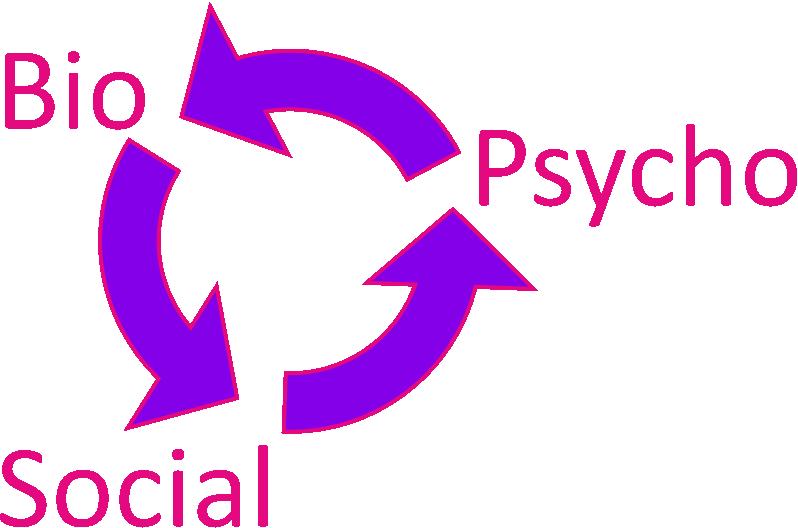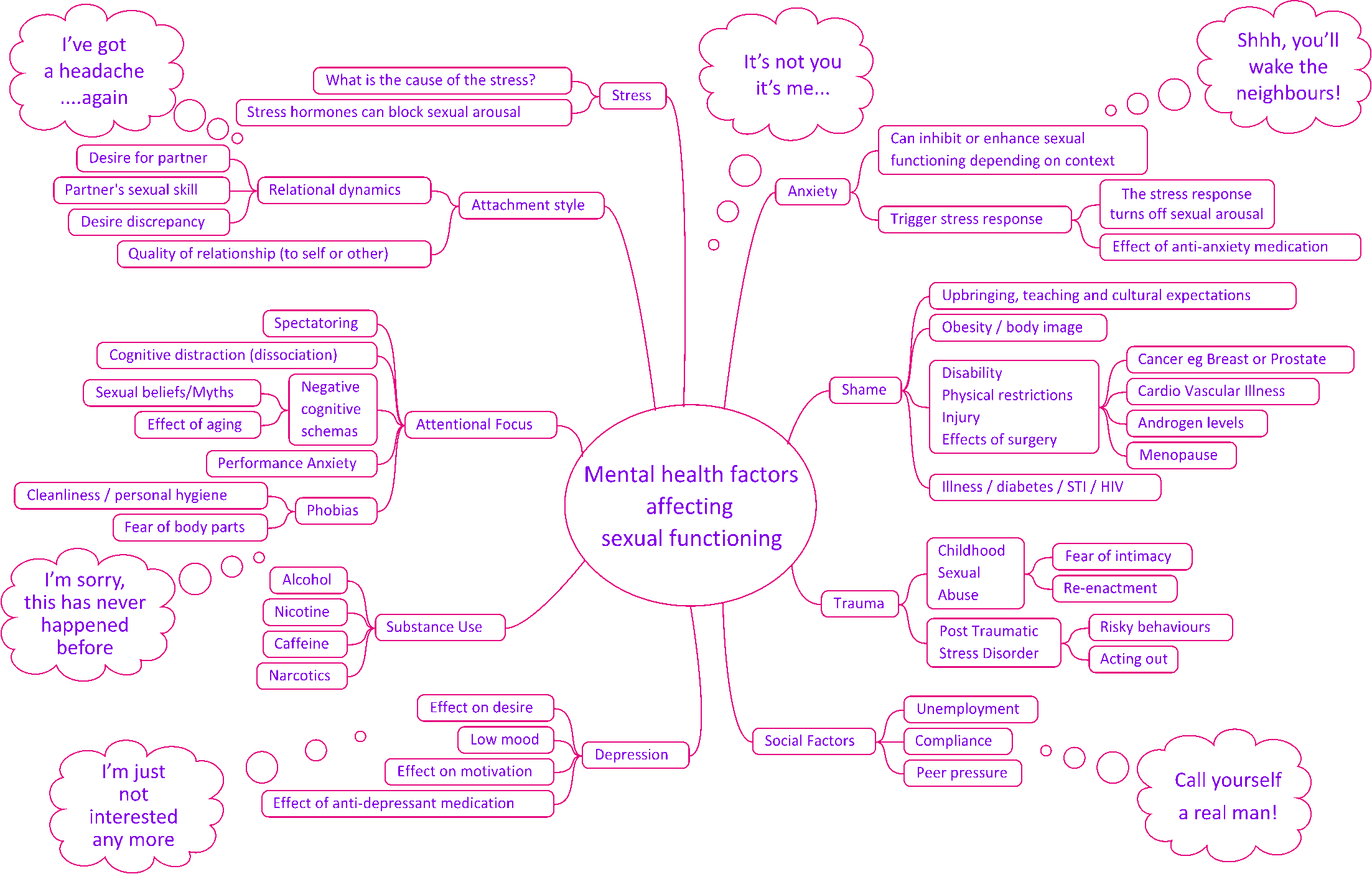How does mental health affect sexual function?
What can affect sexual functioning?
It’s often difficult to decide how the main causes of problems in sexual functioning interact with each other and which develops first. The main categories of sexual functioning problems are biological (the medical and physical characteristics of the individual), psychological (what’s going on in the mind of the individual), and social (what’s going on around the individual).
For example, is someone depressed because sex isn’t working the way they want it to, or is it because they are depressed that sex isn’t working the way they want it to? For this reason we refer to the study of sexual function as a bio-psycho-social discipline.

The Role of Relationship
Sex is a relational activity. In partner sex there is a relationship with your partner(s), in solo sex there is a relationship with yourself. Mental health impacts the quality of such relationships and so affects the type and quality of sex. Biological constitution affects the type and quality of sex and can affect the relationship. In turn, the quality of the relationship can affect the type and quality of sex and so can affect our mental well-being. Cultural beliefs and teachings may be at odds with our deepest yearnings, making it difficult to discuss our needs without feeling shame.
Some idea of this can be seen from the mind map below
Why classify sexual problems?
There are a number of reasons why we need to classify sexual problems. If people’s sexual health and well-being is regarded as something of relevance and importance to society then society has to identify, clarify, and distinguish between the various problems and then recommend relevant trusted solutions.
Furthermore, if there are some costs associated with providing treatments, society needs to decide who is going to pay the bill and whether that provision needs to be overseen and regulated.
One such approach comes from The World Health Organisation (an agency of the United Nations) which seeks to identify the various health issues that people encounter. Their perspective is to classify, quantify and provide statistics to inform governments and health professionals around the world so that human health can be improved.
What does the World Health Organisation (WHO) say about good Sexual Health?
‘It is a state of physical, emotional, mental and social well-being in relation to sexuality; it is not merely the absence of disease, dysfunction or infirmity. Sexual health requires a positive and respectful approach to sexuality and sexual relationships, as well as the possibility of having pleasurable and safe sexual experiences, free of coercion, discrimination and violence. For sexual health to be attained and maintained, the sexual rights of all persons must be respected, protected and fulfilled.’ (WHO, 2006)
Their relevant instrument is The International Classification of Diseases and Related Health Problems (ICD-11). This covers all health problems, of which sexual health and well-being is a component.
Another approach comes from The American Psychiatric Association (APA) which is an organisation of mental health professionals. The APA seeks to organise and regulate the provision of care to people with mental illness in The USA.
Their relevant instrument is The Diagnostic and Statistical Manual of Mental Disorders (DSM–5). This covers all mental health problems, of which sexual health and well-being is a component.
Any problems with this?
The two classification systems outlined above originate from an ‘old school’ medical approach which defines human problems as defects or dysfunctions. The viewpoint being that with the skilful and appropriate application of a ‘cure’ the patient should get better. This model seems to be a good fit with funding schemes such as private or public health provision. Match a dysfunction with an approved and costed ‘cure’ and all we need to argue about is money.
This approach is not well aligned with the complex biopsychosocial nature of sexual problems although the ICD-11 has made steps to rectify this. A more measured approach has been set out by The New View Manifesto. This is proposed as a New View of Women’s Sexual Problems by The Working Group on A New View of Women’s Sexual Problems.
This is an understandable response to the perceived traditional male (or phallocentric) approach that perhaps underpinned earlier attempts to classify sexual problems. The New View Manifesto makes the case for a nuanced biopsychosocial framework for the understanding of sexual problems.
Setting aside the gender politics, the New View approach appears to be a more fitting framework to accommodate all those people who are interested in understanding and improving their sex lives.
In the UK, public funding of psychosexual services is patchy and declining so you usually have to seek out private practitioners (like me).


